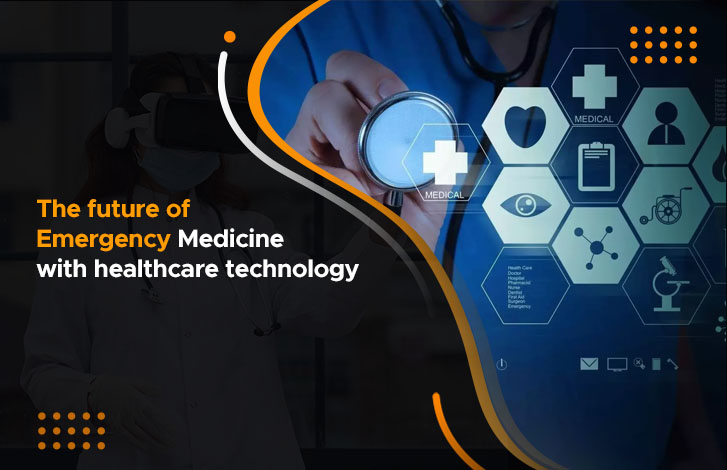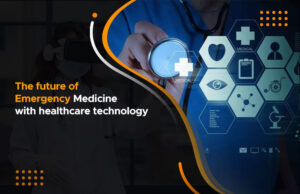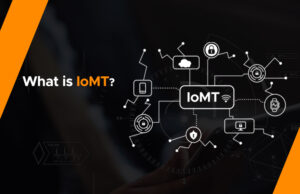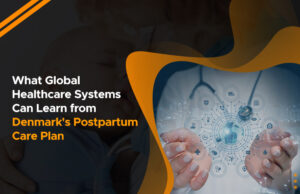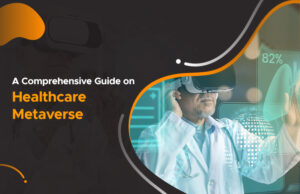Emergency medicine is the specialty of treating illnesses or injuries requiring immediate medical attention. Emergency physicians (often called “ER doctors” in the United States) care for unscheduled and undifferentiated patients of all ages. They are responsible for initiating resuscitation and stabilization, performing the initial investigations and interventions, and coordinating the transfer or discharge of patients in the acute phase.
Emergency medicine is a challenging and rewarding field that requires high skill, knowledge, and adaptability. However, it also faces many challenges, such as overcrowding, resource limitations, workforce shortages, patient safety issues, and the increasing complexity and diversity of cases. Emergency medicine must embrace the advances and innovations of healthcare technology to improve its quality and efficiency and overcome its challenges.
What is Healthcare Technology?
Healthcare technology is the application of scientific knowledge and engineering principles to improve health outcomes, prevent diseases, diagnose problems, treat conditions, and enhance well-being. Healthcare technology encompasses various devices, systems, software, and services used by healthcare professionals and patients in multiple settings.
Some examples of healthcare technology are:
- Medical devices: such as defibrillators, ventilators, ultrasound machines, pacemakers, etc.
- Information systems: such as Electronic Health Records (EHRs), telemedicine platforms, Clinical Decision Support Systems (CDSSs), etc.
- Artificial intelligence (AI): such as machine learning algorithms, natural language processing (NLP), computer vision, etc.
- Biotechnology: such as gene therapy, stem cell therapy, nanotechnology, etc.
- Digital health: such as wearable devices, mobile apps, online platforms, etc.
How Can Healthcare Technology Benefit Emergency Medicine?
Healthcare technology can offer many benefits for emergency medicine, including improving patient outcomes, enhancing clinical performance, reducing costs, and increasing access to care. Some of the potential benefits are:
Faster and more accurate diagnosis
Healthcare technology can help emergency physicians diagnose patients’ conditions quickly and accurately by providing them with real-time data, images, test results, and evidence-based guidelines. For example, point-of-care ultrasonography can help emergency physicians assess patients with suspected distal forearm fractures without needing radiography. AI can also help emergency physicians interpret ECGs, detect strokes, or predict sepsis with high accuracy and speed.
Better and safer treatment
Healthcare technology can help emergency physicians provide better and safer patient treatment by enabling them to monitor vital signs, administer medications, perform procedures, and communicate with other providers. For example, medical devices can help emergency physicians deliver oxygen therapy, control bleeding, or perform CPR more effectively. Information systems can help emergency physicians access patients’ medical histories, prescribe drugs, or consult specialists more easily. Biotechnology can help emergency physicians treat patients with novel therapies such as gene editing or stem cell transplantation.
Lower costs and higher efficiency
Healthcare technology can help emergency physicians lower costs and increase efficiency by reducing errors, waste, duplication, and variation in emergency care. For example, healthcare technology can help emergency physicians avoid unnecessary tests, procedures, or admissions by providing accurate and timely information and guidance. Healthcare technology can also help emergency physicians standardize and streamline their processes and workflows by automating tasks, reducing paperwork, or enhancing coordination. Healthcare technology can also help emergency physicians optimize resource allocation and utilization by providing them with data-driven insights and predictions.
Higher access and satisfaction
Healthcare technology can help emergency physicians increase patient access and satisfaction by providing more convenient, personalized, and affordable care options. For example, telehealth can help emergency physicians deliver care remotely to patients who live in rural areas, have mobility issues, or face transportation barriers. Digital health can help emergency physicians empower patients to manage their health by providing them with wearable devices, mobile apps, or online platforms to monitor their symptoms, track their progress, or connect them with support groups.
What are the Challenges and Risks of Healthcare Technology in Emergency Medicine?
Healthcare technology also poses some challenges and risks for emergency medicine that must be addressed and mitigated. Some of the potential challenges and risks are:
Ethical and legal issues
Healthcare technology can raise ethical and legal issues for emergency medicine, such as privacy, consent, liability, accountability, and equity. For example, how can emergency physicians ensure patients’ data are protected and used appropriately when using AI or information systems? How can emergency physicians obtain informed consent from patients using telehealth or biotechnology? Who is responsible if a medical device malfunctions or an AI algorithm makes a wrong decision? How can emergency physicians ensure that healthcare technology does not exacerbate health disparities or create new ones?
Technical and practical issues
Healthcare technology can also encounter technical and practical issues for emergency medicine, such as reliability, validity, usability, interoperability, and scalability. For example, how can emergency physicians ensure that healthcare technology is reliable and valid when dealing with complex and uncertain situations? How physicians ensure that healthcare technology is user-friendly and compatible with their workflow and environment How they may ensure that healthcare technology can communicate and integrate with other systems and devices? How can healthcare technology adapt and expand to meet emergency care’s changing needs and demands?
Educational and cultural issues
Healthcare technology can also create educational and cultural issues for emergency medicine, such as training, evaluation, regulation, and acceptance. For example, how can emergency physicians acquire the necessary skills and knowledge to use healthcare technology effectively and safely? How emergency physicians can evaluate the performance and impact of healthcare technology on patient outcomes and quality of care? How they can follow the standards and guidelines for using healthcare technology consistently and ethically? And how can they overcome the barriers and biases that may prevent them from adopting or trusting healthcare technology?
What are the Recommendations for Emergency Medicine to Leverage Healthcare Technology?
Healthcare technology offers many opportunities for emergency medicine to improve patient care and clinical practice. However, it also requires careful consideration of its benefits, challenges, risks, and limitations. To leverage healthcare technology responsibly and beneficially, emergency medicine should follow some recommendations, such as:
Engage in multidisciplinary collaboration
Emergency medicine should collaborate with other disciplines, such as engineering, computer science, bioethics, law, and public health, to develop, evaluate, and implement healthcare technology safely, ethically, and effectively. For example, emergency medicine should work with engineers and computer scientists to design and test healthcare technology that meets the needs and expectations of emergency care. Emergency medicine should also work with bioethicists and lawyers to address the ethical and legal issues of using healthcare technology. Emergency medicine should also work with public health experts to assess the impact and outcomes of healthcare technology on population health and health equity.
Engage in continuous education and evaluation
Emergency medicine should engage in continuous education and evaluation to keep up with the rapid changes and innovations in healthcare technology. For example, emergency medicine should provide training and support for emergency physicians and other staff to use healthcare technology effectively and safely. Emergency medicine should also conduct research and quality improvement projects to measure the performance and impact of healthcare technology on patient care and clinical practice. Emergency medicine should also seek feedback and input from patients and other stakeholders to improve the usability and satisfaction of healthcare technology.
Engage in patient-centered care and communication
Emergency medicine should engage in patient-centered care and communication when using healthcare technology. For example, emergency medicine should respect patients’ preferences, values, and goals when using healthcare technology. Emergency medicine should also inform patients about healthcare technology’s benefits, risks, limitations, and alternatives. It should also involve patients in decision-making when using healthcare technology. Additionally, it should communicate clearly and empathetically with patients using healthcare technology.
Conclusion
Healthcare technology is revolutionizing emergency medicine by providing new opportunities to improve patient care and clinical practice. However, it also presents new challenges and risks that must be addressed. Emergency medicine should follow recommendations such as engaging in multidisciplinary collaboration, continuous education and evaluation, and patient-centered care and communication to leverage healthcare technology responsibly and beneficially. By doing so, emergency medicine can enhance its role as a vital provider of high-quality emergency care for all patients.

